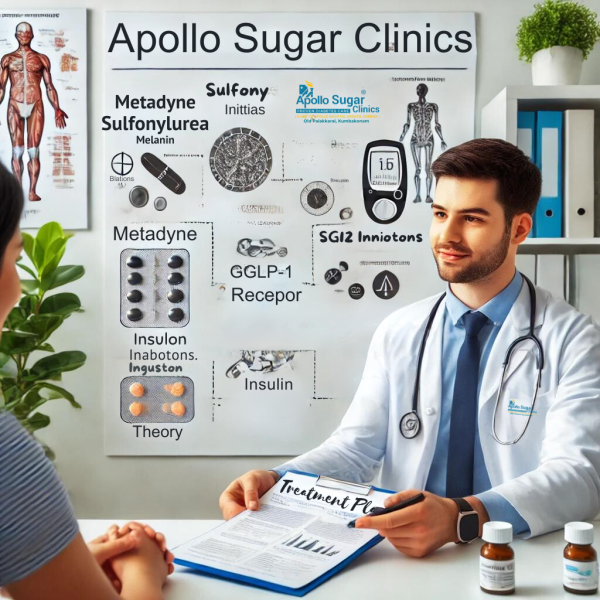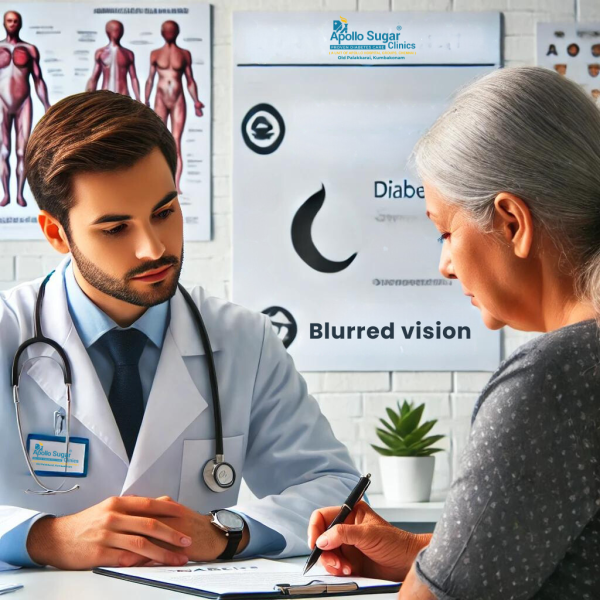Signs and Symptoms of Diabetes
Recognizing the Signs and Symptoms of Diabetes: Early Detection and Effective Management

Introduction
Recognizing the signs and symptoms of diabetes is essential for early detection and management. Understanding these indicators can help you seek timely medical advice and make necessary lifestyle changes to maintain your health and well-being.

What Is Diabetes?
Diabetes is a chronic condition that affects how your body processes blood sugar (glucose). It occurs when the body either doesn’t produce enough insulin or cannot effectively use the insulin it produces. Insulin is a hormone that helps glucose enter cells to be used for energy. Without proper insulin function, glucose levels in the blood can become too high, leading to various health complications.
Common Symptoms of Diabetes
Frequent Urination
One of the early signs of diabetes is frequent urination. This occurs because excess glucose in the blood forces the kidneys to work harder to filter and absorb it. When the kidneys can’t keep up, the excess glucose is excreted in the urine, leading to more frequent urination.
Increased Thirst
As a result of frequent urination, your body loses more water, leading to dehydration. This triggers excessive thirst, a common symptom of diabetes. If you find yourself drinking more fluids than usual and still feeling thirsty, it could be a sign of high blood sugar levels.
Extreme Hunger
Despite eating regular meals, people with diabetes often experience intense hunger. This happens because the body’s cells are not getting enough glucose for energy, leading to increased hunger signals sent to the brain.
Unexplained Weight Loss
Sudden and unexplained weight loss can be a warning sign of diabetes, especially in type 1 diabetes. When the body can’t use glucose for energy, it starts breaking down fat and muscle for fuel, leading to significant weight loss.
Fatigue
Feeling unusually tired or fatigued is another common symptom of diabetes. High blood sugar levels can affect your body’s ability to utilize glucose for energy, leaving you feeling exhausted.
Blurred Vision
Elevated blood sugar levels can cause the lens of the eye to swell, leading to blurred vision. If you notice sudden changes in your vision, it’s important to get your blood sugar levels checked.
Slow-Healing Sores or Frequent Infections
Diabetes can impair the body’s ability to heal wounds and fight infections. If you have cuts or sores that take a long time to heal or experience frequent infections, it could be a sign of diabetes.
When to Seek Medical Advice
If you experience any of the above symptoms, it’s crucial to seek medical advice promptly. Early detection and management of diabetes can prevent complications and improve your quality of life.
Managing Diabetes at Apollo Sugar Clinics
At Apollo Sugar Clinics, we offer comprehensive diabetes care to help you manage your condition effectively. Our experienced healthcare professionals provide personalized treatment plans and ongoing support to ensure your health and well-being.

Conclusion
Recognizing the signs and symptoms of diabetes is the first step towards effective management. By staying informed and seeking timely medical advice, you can take control of your health and lead a fulfilling life. If you suspect you may have diabetes, visit Apollo Sugar Clinics for expert care and guidance on managing your condition.
F.A.Q

Diabetes is a chronic condition where the body either doesn’t produce enough insulin or cannot effectively use the insulin it produces, leading to high blood sugar levels.
- Frequent urination
- Increased thirst
- Extreme hunger
- Unexplained weight loss
- Fatigue
- Blurred vision
- Slow-healing sores or frequent infections
Diabetes can be caused by a combination of genetic and environmental factors, including family history, obesity, lack of physical activity, and poor diet.
- Type 1 Diabetes: The body does not produce insulin. It is usually diagnosed in children and young adults.
- Type 2 Diabetes: The body either resists the effects of insulin or does not produce enough insulin. It is more common in adults.
- Gestational Diabetes: Occurs during pregnancy and usually disappears after giving birth.
Diabetes is diagnosed through blood tests that measure blood glucose levels, such as:
- Fasting Blood Sugar Test
- Oral Glucose Tolerance Test (OGTT)
- A1C Test
While type 1 diabetes cannot be prevented, type 2 diabetes can often be prevented or delayed with healthy lifestyle changes, such as maintaining a healthy weight, eating a balanced diet, and exercising regularly.
